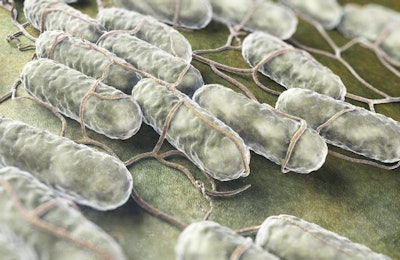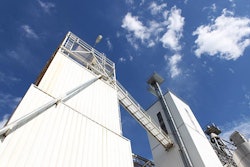
“Hatcheries are a great place to multiply Salmonella,” said Don Waldrip, DVM, technical services veterinarian for Zoetis.
Speaking at a press conference held on February 11, in advance of the International Production & Processing Expo (IPPE) in Atlanta, Georgia, Waldrip spoke about Salmonella prevention and reduction efforts need to be diligently taken at every step of live broiler production, as well as during poultry processing.
Many factors, such as warm temperatures, an abundance of feed and plenty of moisture, make the spread of Salmonella a real threat in broiler hatcheries, according to Waldrip, a 50-year veteran of the poultry industry who was inducted into the American Association of Avian Pathologists’ Hall of Honor in 2017.
Because of those risks, Waldrip offered five key pieces of advice to guard against Salmonella in the hatchery. Those are:
- Pay careful attention to disinfection and cleanliness in all phases and stages in the hatchery.
- Keep broiler-breeder eggs clean and off the floor. In instances when eggs do drop to the floor or become dirty, it is best to discard those eggs, he said.
- Do not overlook ventilation and air-handling units. These units can pull in air that is contaminated with Salmonella, so it is imperative to make sure they are clean. Dust also needs to be kept to a minimum, as Waldrip says dust can be a carrier of Salmonella.
- Take additional measures to prevent bacterial infections if no antibiotic is used during in ovo vaccination.
- Rely more on robotics and automation to do certain tasks in the hatchery. People can be a key carrier of pathogens such as Salmonella, and the use of more automation helps with biosecurity. “Robotics are a clean operation,” he said, and with that knowledge, the United States poultry industry is seeing increased use of automation.

Don Waldrip, DVM (Zoetis)















